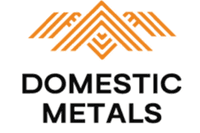Glencore is down drastically from the start of the year, and a recent report from the Bank of America suggests that the company’s troubles could have far-reaching effects.
Despite seeing its share price rise over the last week, Glencore (LSE:GLEN) is still down drastically from the start of the year, and a recent report from the Bank of America (BofA) suggests that the company’s troubles could have more far-reaching effects.
As Bloomberg states, the report, titled “The $100 Billion Gorilla In the Room,” notes that global financial firms have an estimated $100 billion or more in exposure to Glencore. That could be problematic, as BofA analysts believe that Glencore’s debt and trade deals have a higher-than-expected level of risk.
“[S]tress in Glencore’s share price and debt spreads may spur a review by investors, supervisors and bank management,” analysts including Alastair Ryan and Michael Helsby are quoted as saying. “Many banks may now be more carefully reviewing their exposure to the commodities complex … We believe the numbers are big enough that banks will need to use third-quarter disclosure to alleviate what we believe will be building investor concerns.”
Glencore’s share price has gained about 79 percent since September 29, when the company issued a “[r]esponse to speculation” statement indicating that it has “positive cash flow, good liquidity and absolutely no solvency issues.” In fact, its share price jumped so much that on October 5, the company had to put out another statement at the request of The Stock Exchange of Hong Kong to clarify that it was not aware of any reasons for those price and volume movements. Glencore is now trading at GBP123.22.
However, that’s still a far cry from where the company’s share price was sitting at the start of 2015, at GBP298.80. All in all, Glencore’s share price has lost GBP209.60 over the past year.
Some of those losses came earlier in September, despite measures taken by the company at the time to reduce its debt load. Glencore announced plans to reduce its debt on September 7, with measures including putting its Katanga and Mopani copper operations on hold. In particular, falling prices for copper and coal have put pressure on Glencore. Meanwhile, the company also closed its Eland platinum mine in South Africa on Wednesday.
It’s worth noting that Glencore isn’t the only large miner that’s been hit by the rout in commodities prices. Freeport-McMoRan (NYSE:FCX) is down 59 percent over the past year, while BHP Billiton (NYSE:BHP,ASX:BHP,LSE:BLT) has lost 35 percent over the same period. That said, as with Glencore, both of those companies have seen share price rises in the past week. Since September 29, BHP is up 17 percent, at $35.67, while Freeport’s share price is up about 46 percent.
The latter declared a quarterly cash dividend of $0.05 per share at the end of last month, and has piqued the interest of activist investor Carl Icahn, who added two directors to Freeport’s board this week.
Still, it’s the exposure of financial firms to Glencore that has analysts concerned. Zero Hedge has gone so far as to suggest that Glencore is “in danger of becoming the commodity sector’ ‘Lehman,'” which is not an insignificant point. More poignantly, the article quotes BofA as saying, “[c]omparisons are being made with some financially leveraged companies during the 2008 Global Financial Crisis.”
Certainly, while Glencore and its fellow miners have gained back some ground recently, metals investors will still want to continue to keep a close eye on the situation going forward.
Company news
Colorado Resources (TSXV:CXO) put out results from 2015 exploration work at the Tami zone claims at its KSP property. Channel and chip sample results returned anomalous values over 700 meters of strike from the main Tami showing, highlighting further exploration potential for the area. The company also released results of soil and rock sampling and a ground magnetics survey.
Skeena Resources (TSXV:SKE) has acquired the GJ copper-gold property in British Columbia from Teck Resources (TSX:TCK.B,NYSE:TCK) and NGEx Resources (TSX:NGQ). The property lies adjacent to Skeena’s Spectrum project in BC.
Also this week, Nautilus Minerals (TSX:NUS) hit back at environmentalist critiques of its Solwara 1 seafloor mining project in Papua New Guinea. According to Mining Weekly, the firm called a critique released Monday unscientific and full of errors.
“Their critique is highly flawed and it is clear that they only partially understand what it is they’re criticising. For instance, to criticise the assessment because it didn’t include gold, had no bearing on the overall mining operation,” Nautilus CEO Mike Johnston told the publication.
Securities Disclosure: I, Teresa Matich, hold no direct investment interest in any company mentioned in this article.





